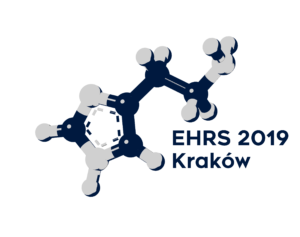Welcome to Kraków!
Please join us for the 48th meeting of the European Histamine Research Society in Kraków,
the city of polish Kings and former capital.
The meeting will begin with opening lectures followed by Welcome reception on Wednesday evening May 15 and will end with a Gala dinner on Saturday, May 18. We believe that this scientific event will provide high-level lectures, communications and poster presentations held by histamine experts.
We also hope the Meeting will also be a good opportunity to broaden your knowledge, establish new scientific cooperation and meet colleagues personally.
Besides the Science, we encourage you to enjoy the charm of Kraków in your free time.
VENUE
The conference will take place in International Cultural Centre. Located in the heart of historical city center placed on the UNESCO World Heritage List .
CONFERENCE MAIN TOPICS
-
- Pain, neuropathic pain
- Pruritus, urticaria, allergy, asthma and food allergy
- Multitarget, multifunctional approaches for complex diseases
- Around histamine, development of new biologically active compounds
- Histamine in gastrointestinal tract
- Inflammation and postinflammatory hypersensitivity
- Histamine production by commensal bacteria
- CNS, neuroprotection, neuroinflammation, neurodegenerative diseases
PROGRAMME
Conference programme can be found HERE
48th meeting of the EHRS Book of Abstracts can be found HERE
INVITED SPEAKERS
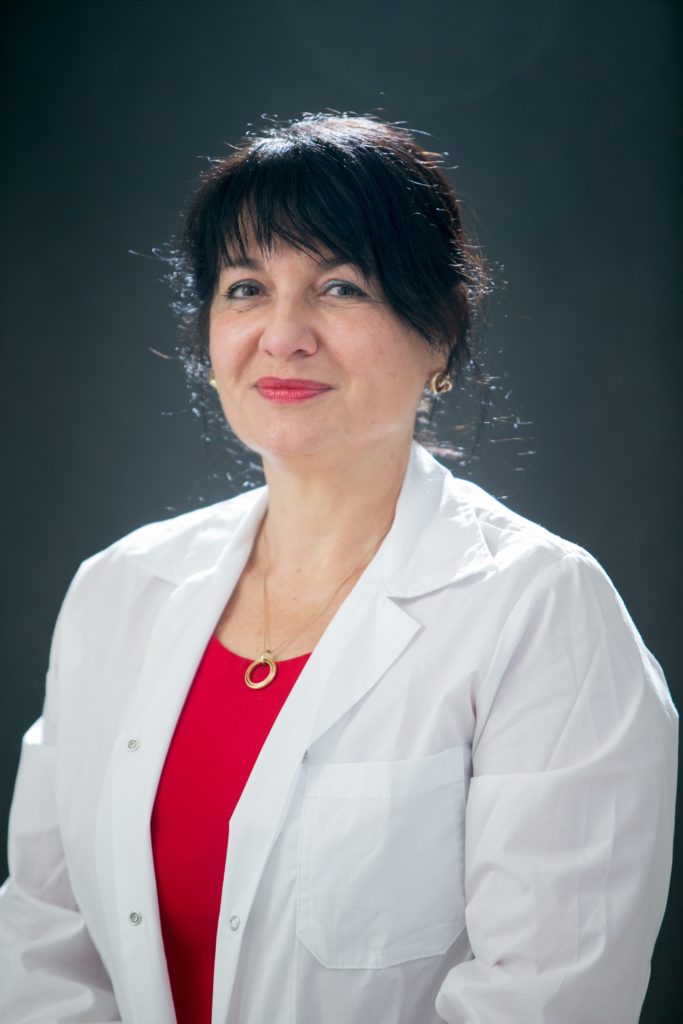
Prof. Francesca Levi-Schaffer
The Hebrew University of Jerusalem, Israel
Title: Inhibit Activation or Activate Inhibition of Mast Cells and Eosinophils: Which Weapon is Better to Fight Allergic Diseases?
Read more
Francesca Levi-Schaffer is a Professor of Pharmacology and Experimental Therapeutics at The Hebrew University of Jerusalem Institute for Drug Research, School of Pharmacy, Faculty of Medicine. She holds the Isaac and Myrna Kaye Chair in Immunopharmacology. Prof. Levi-Schaffer was born in Italy and completed her PharmD degree at the University of Milano, her PhD degree in Immunology at the Weizmann Institute, Israel, and her post-doctorate at Harvard Medical School.
Prof. Levi-Schaffer has published 165 articles in peer-reviewed journals, 89 reviews and editorials and 25 book chapters. She has three patents and one provisional patent pending. She is Chairperson of the National Committee of IUPHAR representing the Israel Academy of Sciences and Humanities, was instrumental in the establishment of an Immunopharmacology Section in the IUPHAR and currently serves as its first Chairperson. She was a Councilor and member of the Executive Committee (2014-2018) of IUPHAR and currently she serves as IUPHAR first Vice President (2018-22). She is member of the Board and Secretary General (2018-20) of World Allergy Organization; and a former Council member (2016-18) of the Collegium Internationale Allergologicum (CIA). She is also a member of the Israeli Ministry of Health Committee for Human Experimentation of New Drugs;
Prof. Levi-Schaffer’s expertise is in immunopharmacology of allergy focusing on mast cells and eosinophils, their activating and inhibitory receptors, their cross-talk for a better prophylaxis/treatment of allergic diseases.

Prof. Henk Timmerman
Prof.em. Dpt. Chemistry and Pharmaceutical Sciences, VU University, Amsterdam
Title: Histamine, how an ugly duckling became a beautiful swan. Observations by a medicinal chemist
Read more
Henk Timmerman (1937, The Netherlands) was trained as an organic chemist and later as a pharmacologist too. He graduated from the VU University in Amsterdam and obtained his Ph.D. degree on a mixed chemical – pharmacological subject in 1967 from the same institution.
He started his career in the pharmaceutical industry, firstly in research and later in a management position. In 1979 he returned to his alma mater to succeed his main teacher as professor in pharmacochemistry. In 2002 he had to retire from his academic position to become a professor emeritus. He has been dean of the Faculty of Sciences of the VU University and director of the Leiden – Amsterdam Center for Drug Research, LACDR. He is (co-) author of almost 450 scientific papers, several patent applications and has been for a number of years listed as one of the hundred most cited authors in pharmacology. His
H-factor is 54.
His research has been concentrated on the different types of histamine receptors and ligands of these receptors. Several of the ligands developed by this research have become much used research tools.
Henk Timmerman has been the supervisor of more than 40 PhD students, including 6 at Indonesian universities.
He has been active, national and international, to promote the discipline of medicinal chemistry as an independent branch of chemistry. He has been the president of the Royal Netherlands Chemical Society, the Netherlands Society for Pharmaceutical Research and the European Federation of Medicinal Chemistry. He also served the International Union of Pure and Applied Chemistry, e.g. as member of its Division for Chemistry and Human Health. He was member of the “Committee for Chemistry “of the Royal Netherlands Academy of Sciences.
For his achievements Henk Timmerman received several honours, such as honorary degrees of universities in Yogyakarta-Indonesia (UGMO), Lodz (Poland) and Antwerp (Belgium). He is also honorary member of the Royal Netherlands Chemical society, The European Histamine Research society and the Netherlands Pharmacological society. He is recipient of the Nauta Award of the European Federation for Medicinal Chemistry, the Ariëns
Award of the Netherlands Pharmacological Society and the Saal van Zwanenberg- Organon Prize and Medal. In Indonesia a Henk Timmerman Award for young medicinal chemists has been installed since 2007.
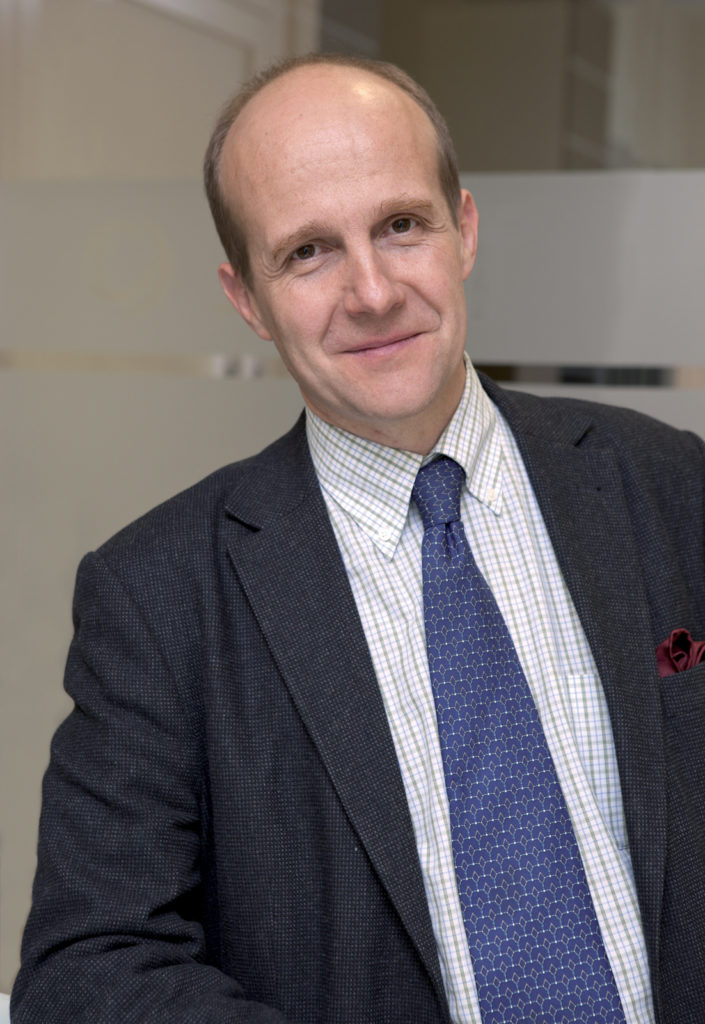
Prof. Stefan Chlopicki
Jagiellonian Centre for Experimental Therapeutics, Kraków, Poland
Title: Towards endothelial profiling in vivo .
Read more
Stefan Chłopicki is a Professor of Pharmacology at Chair of Pharmacology at Jagiellonian University Medical College, and an initiator and Director of Jagiellonian Centre for Experimental Therapeutics (JCET), the newly-established interdisciplinary academic research centre at Jagiellonian University ( www.jcet.eu ). He graduated with honours in Medicine (1990), obtained his PhD in Medicine (1993 summa cum laude) and research training in the Chair of Pharmacology headed by Prof. Richard Gryglewski. He received fellowship in Strathclyde University, UK (Prof. J. Parratt, 1993), Post Ph.D. fellowship in the Arhus University, Denmark (Prof. M. Mulvany 1994-1995), and NIH fellowship in the BWH, Harvard Medical School, Boston, USA (Prof. E. J. Neer, 1997) at finally become a full professor at Jagiellonian University in Kraków (2006). His major research interests include pathophysiology biochemistry and pharmacology of endothelium, role of endothelial
mediators in vascular inflammation, pharmacology of platelets. His scientific activity includes over 290 publications; including over 220 peer-reviewed original publications, 34 reviews, 27 editorials, 12 book chapters. He is also an author or co-author of 81 patent applications and 46 granted patents (12 patent families).
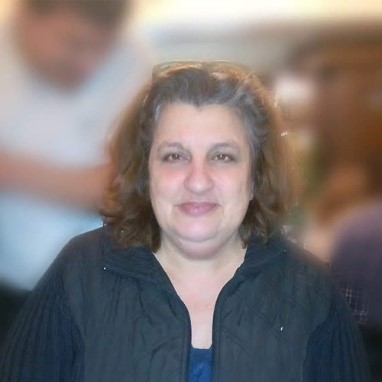
Prof. Fernanda Borges
University of Porto, Portugal
Exploiting multiple trails as a turning point for drug discovery and development for neurodegenerative diseases
Read more
Fernanda Borges is Associate Professor of the Department of Chemistry and Biochemistry of Faculty of Sciences of University of Porto and the Coordinator of the Medicinal Chemistry Group in Chemistry Research Centre in the University of Porto (CIQUP). She received her MSc and PhD (Pharmaceutical Chemistry) in Pharmacy from the Faculty of Pharmacy, University of Porto, Portugal. Her current research is focused on medicinal chemistry, namely in the design and development of new chemical entities to be used in the prevention/therapy of neurodegenerative diseases. Nanotechnology and nanomedicine applications are up-to-date a complementary landscape in the group research. She authored more than 300 publications in peer review journals (Scopus h-index: 47), 10 international book chapters, and 3 patents. She is founder of MitoTAG start-up company.
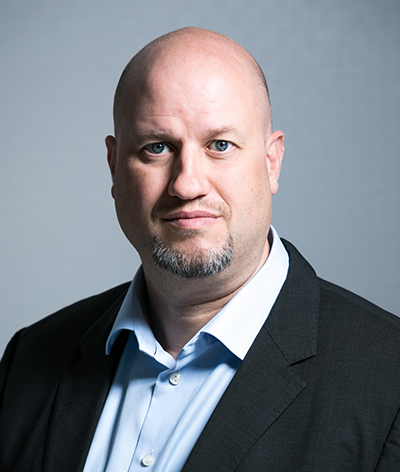
Jonas Dyhrfjeld-Johnsen, PhD
SENSORION SA, Montpellier, France
Title: Translational development of Seliforant for the treatment of vertigo.
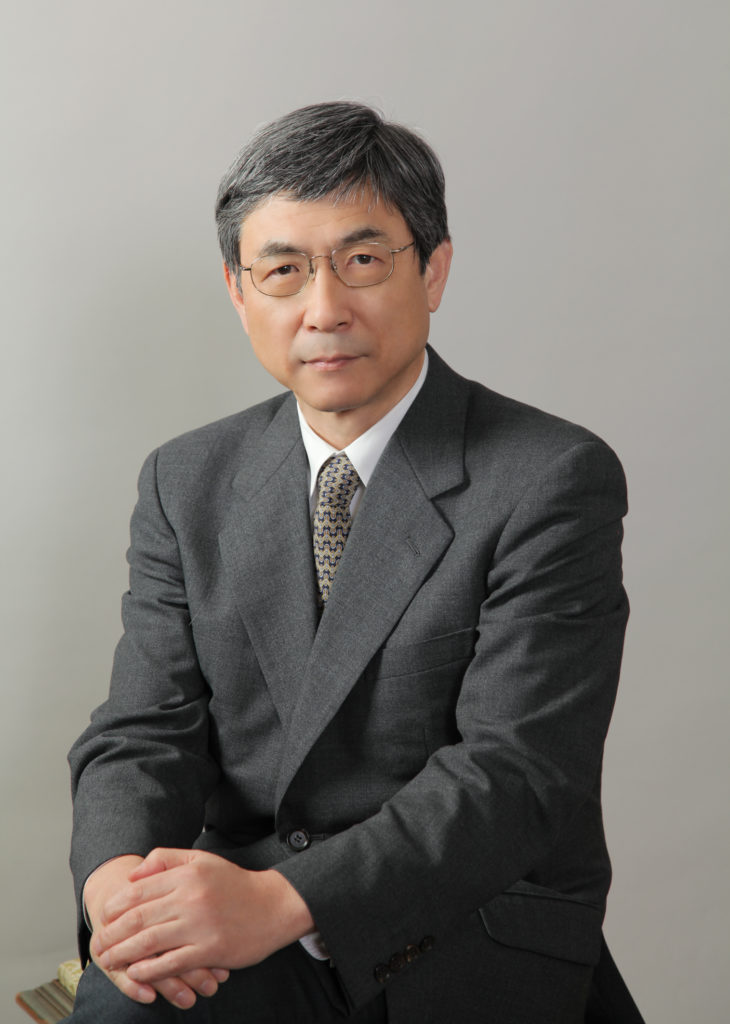
Prof. Hiroyuki Fukui
Tokushima University Graduate School of Biomedical Sciences, Japan
Title: Combination therapy of allergic rhinitis to a high-degree by suppressing histamine H1 receptor-pkc delta and nfat signalings.
Read more
Hiroyuki Fukui was given PhD from Graduate School of Medicine, Osaka University in 1977. Then he became assistant professor, and succeeded in purifying histidine decarboxylase whose antibody was essential to visualize histaminergic neurons. After 4 years stay in NIH, USA, he became associate professor in Osaka University, and succeeded in histamine H1 receptor cloning in 1991. He became full professor, Faculty of Pharmaceutical Sciences, Tokushima University in 1998. He elucidated that antihistamines alleviate allergic symptoms by suppressing histamine H1 receptor gene expression. He proposes combination therapy of allergic rhinitis to a high-degree by suppressing gene expression of histamine H1 receptor and the second sensitive gene. He has been making efforts to promote histamine research as president of Japanese Histamine Research Society. He also works at the editorial board of J. Pharm. Exp. Ther.. He is now research professor, Department of Molecular Studies for Incurable Diseases, Tokushima University.
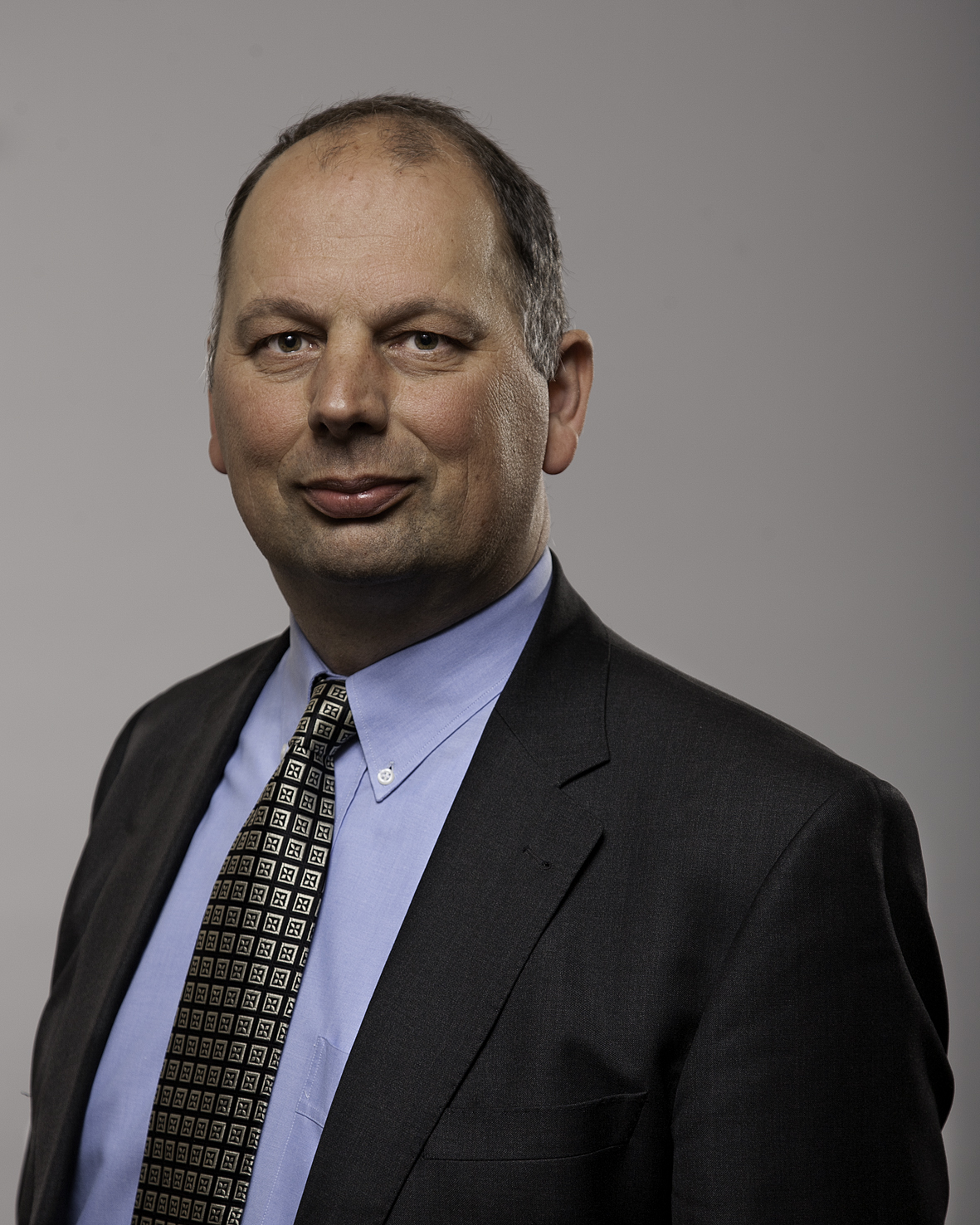
Prof. Rob Leurs
VU University Amsterdam, The Netherlands
Title: New tools for histamine receptor research.
Read more
Professor Rob Leurs studied Medicinal Chemistry at VU University Amsterdam and graduated in 1987. He performed his PhD research on G-protein coupled receptors and obtained his PhD degree from VU University in 1991. As a postdoctoral fellow at INSERM in Paris, he was involved in the cloning of genes encoding histaminergic and serotonergic receptors. In 1993, he was awarded with a 5-year fellowship of the Royal Netherlands Academy of Arts and Sciences. Rob Leurs was appointed as assistant and full professor of the Division of Medicinal Chemistry in respectively 1998 and 2000. From 2003 to 2005, he was one of the two scientific directors of the Leiden-Amsterdam Center of Drug Research. From 2005 to 2008, he was member of the executive board of the Top Institute Pharma. Professor Leurs served as director of the Department of Chemistry and Pharmaceutical Sciences in 2006 and as vice-dean of the Faculty of Science from 2007 until 2010. He was awarded the Galenus Research Prize in 1997, the Organon Award for Pharmacology in 2000, and a Pfizer Academic Award and a STW/NWO Pionieer grant both in 2001. Moreover, the research group was selected as one of the few Dutch centers of excellence in Chemistry in 2014 and awarded 2 M€ TOP-PUNT grant of the Dutch foundation for Chemical Sciences. In 2016, he has been appointed as member of the Royal Netherlands Academy of Arts and Sciences.
Professor Leurs is currently involved in research on G-protein coupled receptors, with specific emphasis on ligands and receptor proteins for histamine and chemokines and in the area of fragment-based drug discovery on a variety of targets, including parasitic phosphodiesterases. Moreover, he is co-founder of Griffin Discoveries, a company that is valorizes the G-protein coupled receptor expertise and is currently involved in the discovery and development of GPCR receptor ligands. Next to that he has in recent years started a new line on structure-based development of potential drugs against Neglected Tropical Diseases. Prof. Leurs has been project leader of a NTD project of the Dutch Top institute Pharma and is project leader of the EU-funded program Phosphodiesterase inhibitors for Neglected Parasitic diseases (www.PDE4NPD.eu).
Currently he has published 338 peer reviewed papers with 16823 citations (h-index = 69).
Until January 2019 he has successfully guided 32 different PhD students as promotor,
whereas currently another 13 PhD students are working on diverse research projects.
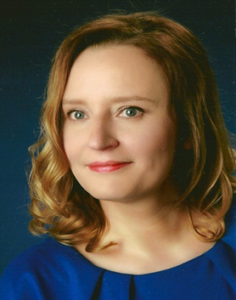
Prof. Joanna Mika
Polish Academy of Sciences, Kraków, Poland
Title: Pharmacological modulation of glia attenuate neuropathic pain and enhance opioid effectiveness
Read more
Professor Joanna Mika is the Head of the Department of Pain Pharmacology of the Institute of Pharmacology Polish Academy of Sciences (PAS) in Krakow, Poland. She received her MSc (1995) degree at the Jagiellonian University and PhD (1999) / postdoctoral (2011)/ professor (2017) degrees at the Institute of Pharmacology PAS. Professor Joanna Mika gained her scientific experience in foreign centers: the Institute of Psychology in Nijmegen, the Netherlands (1996-98); the Rudolf Magnus Institute of Pharmacology in Utrecht, the Netherlands (1996-97), and the Institute of Anatomy and Cell Biology at the Philipps University in Marburg, Germany (1998, 2000-03). Currently, she is conducting joint research with scientists from the Jagiellonian University Medical College, University of Warsaw, Mario Negri Institute in Milan, Marburg and Leicester University, National Research Council of Italy. Professor Mika’s current research is focused on new pain pharmacotherapies using selective pharmacological tools interacting with various signalling pathways and receptors. Her main aim is to identify new mechanisms of neuropathic pain, which may lead to the development of novel polytherapeutic approach that could be used in neuropathic pain. The studies conducted by her research team included analyses of behavioural responses and their correlations with changes in gene expression within the spinal cord and dorsal root ganglia. The analyses were to assess the neuroimmune changes secondary to nerve damage or diabetes. Pharmacological agents used in those studies included anti-inflammatory cytokines, protease inhibitors, P2X4 antagonists, chemokine receptors antagonists, selective inhibitors of transcription factors and intracellular signalling pathways, and the antagonists of H3 and H4 receptors. Analgesic effects of these agents were demonstrated in animal models of neuropathic pain. The obtained results constituted the potential new targets for the therapy of neuropathic pain. Moreover, Professor Mika’s team modulated neuropathic pain with medications used in clinics. Nevertheless, they had not been examined in the treatment of neuropathic pain before. They included maraviroc (CCR5 antagonist), parthenolide (NF-kappaB inhibitor), and minocycline (MMP-9/p38MAPK inhibitor). The obtained results suggested a possibility of future therapy combining opioid analgesics with this strong modulators of neuroimmune responses. Professor Joanna Mika is a co-author of two patent applications and more than 120 publications
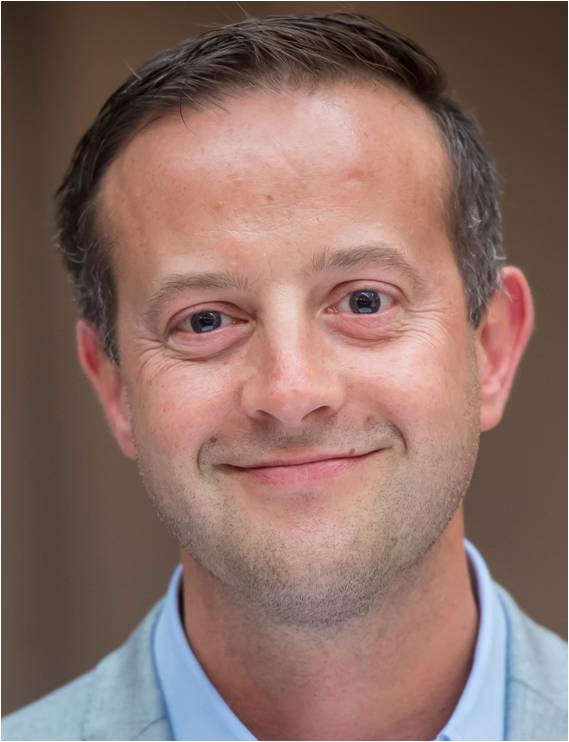
Prof. Liam O’Mahony
National University of Ireland Galway, Ireland
Title: Role of Microbial-Derived Histamine in Mucosal Inflammation
Read more
Prof. Liam O’Mahony received his BSc in Microbiology from University College Cork, Ireland in 1994 and his PhD in Immunology was awarded in 1998 by Trinity College Dublin, Ireland. Thereafter, Dr. O’Mahony performed post-doctoral research at the Department of Microbiology, University College Cork, Department of Medicine, University College Cork and the Digestive Diseases Division, UCLA. Dr. O’Mahony was a Principal Investigator at the Alimentary Pharmabiotic Centre, University College Cork, from 2003 to 2008. From 2009 to 2018, he was head of Molecular Immunology at the Swiss Institute of Allergy and Asthma Research, University of Zürich, Switzerland. He is currently the Prof. of Immunology at the Departments of Medicine and Microbiology, APC Microbiome Ireland, National University of Ireland, Cork, Ireland. He is also currently an EAACI executive committee member and is an Allergy associate editor. His research interests are focused on the molecular basis for microbe and metabolite modulation of mucosal inflammatory responses. In particular, Prof. O’Mahony is investigating the basic mechanisms by which microbes influence allergic sensitization within the gut, skin and lungs.
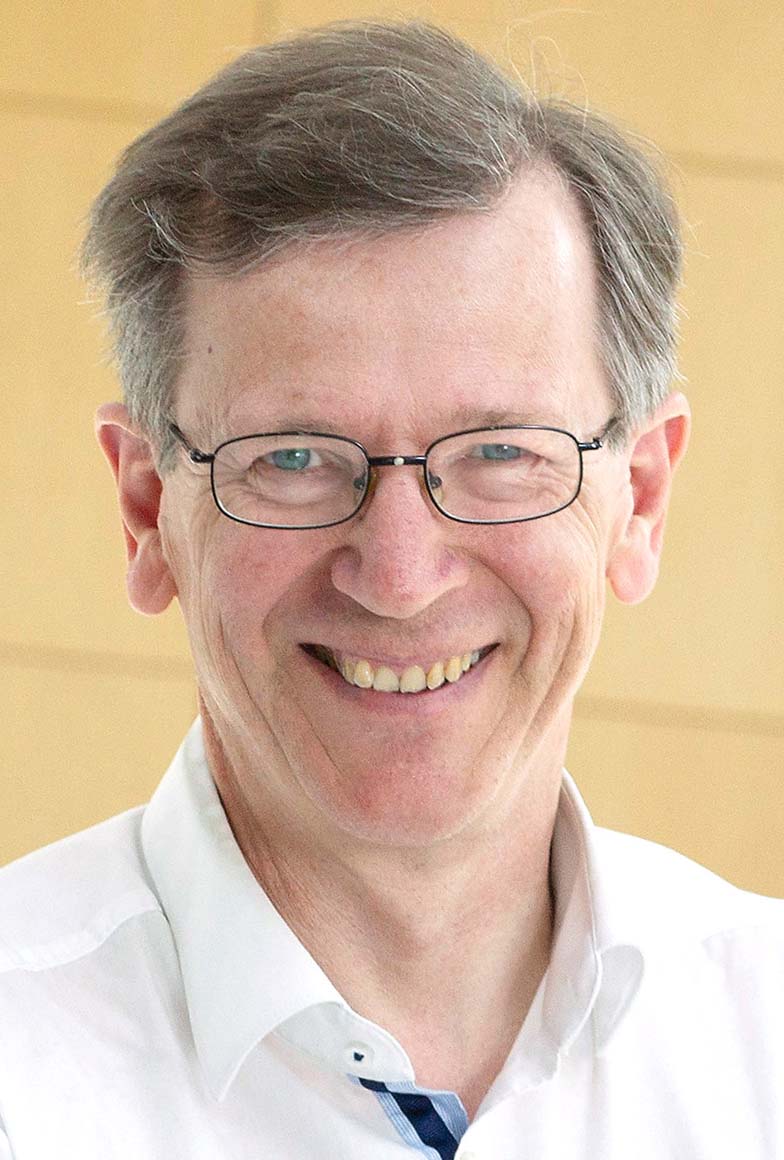
Prof. Pertti Panula
University of Helsinki, Finland
Title: Plasticity of the brain histamine system in health and disease
Read more
Pertti Panula is currently Professor of Biomedicine at the University of Helsinki. He obtained his MD degree in 1977 and PhD in 1980 from the University of Helsinki. He then worked as Fogarty Fellow at the National Institute of Health in Washington, D.C. in the group of Dr. Erminio Costa 1981-1983. After returning to University of Helsinki he worked as Senior Lecturer and acting associate professor at the Department of Anatomy. He was Professor of Cell Biology and Chairman of the Department of Biology at Abo Akademi University in 1992-2001. He was then invited to his current position at the University of Helsinki.
He has published more than 300 original articles, reviews and book chapters. He has edited a number of books and special issues of journals. His research has focused on neurotransmitter systems in the brain, neural basis of behavior, and mechanisms of brain diseases. He discovered the histaminergic neurons in the posterior hypothalamus and established that this system is well conserved in vertebrates, and histaminergic neurons exist also in invertebrates. His group found that histamine H3 receptor regulates alcohol-induced place preference and alcohol drinking in rodents. Targeting this receptor might be useful in treatment of alcohol use disorder. Other research topics have included neuropeptides, particularly neuropeptide FF. He has also two patent families.
Pertti Panula has been council member and treasurer of EHRS, and served in several other international organizations. He is a member of the Finnish Academy of Sciences and Letters and Finnish Society of Sciences and Letters.
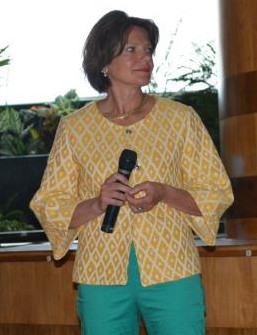
Prof. Beatrice Passani
University of Florence, Italy
Title: What’s histamine got to do with memory stress and appetite?
Read more
‘I obtained my PhD at Columbia University, in New York city and I am now Assistant Professor in Pharmacology at the School of Pharmacy of the Universitá di Firenze. For many years I have been studying the physiological role of histamine as a central neurotransmitter involved in cognitive and homeostatic processes and brain inflammation. My studies aim at understanding the relevance of brain histamine in controlling memory processes and feeding behavior and evaluating the potential therapeutic use of histaminergic ligands for the treatment of psychiatric disorders. Her results indicate that the brain histaminergic system serves as a hub to collect and process peripheral and central information to allocate the appropriate behavior. By using murine models, in our laboratory we are beginning to unravel unsuspected functions of both central and peripheral histaminergic systems as part of the complex gut-brain axis. Hopefully, our studies will contribute to understand if and how brain histamine may have a prospective role in the therapy of neurological disturbances’
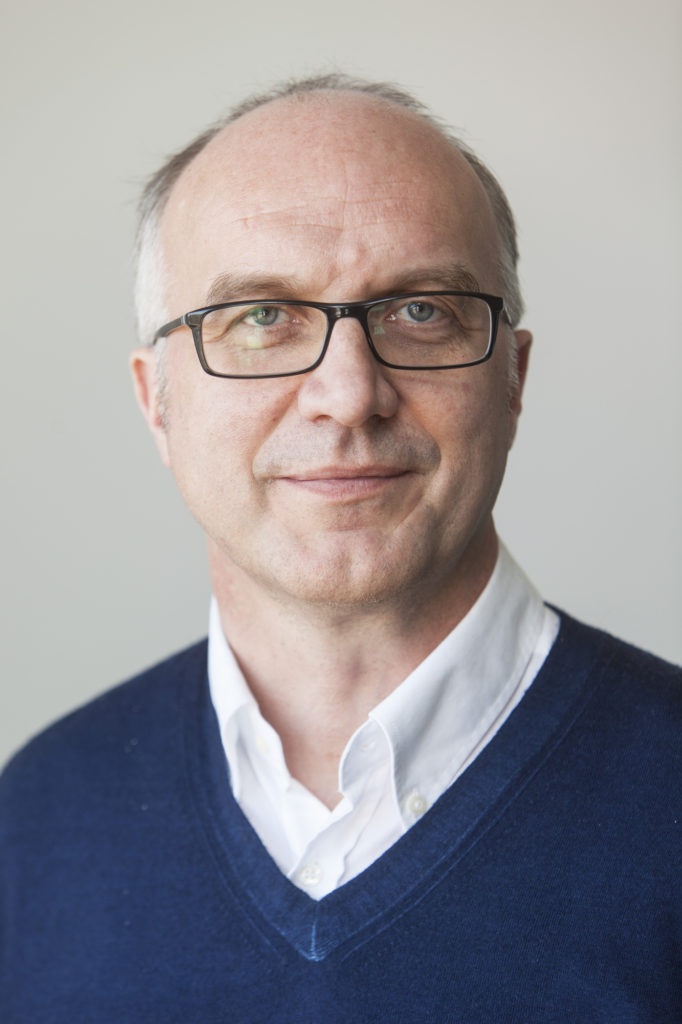
Prof. Holger Stark
Heinrich-Heine University, Düsseldorf, Germany
Title: Pitolisant treatment for children with Prader-Willi Syndrome – a patient study.
Read more
Holger Stark is pharmacist by education and made his PhD in Medicinal Chemistry at the Free University of Berlin, Germany, in 1991 on newly designed prodrugs (BF2.94). Then, he worked on neurotransmitter ligands, mainly at dopamine and histamine receptor subtypes for the central nervous system. In 2000 he became full professor at the Goethe University in Frankfurt, Germany and went in 2013 to the Heinrich Heine University in Düsseldorf, Germany where he has his actual position. He is founded some start-up companies on cancer therapeutics (Warburg Glycomed, PSites Pharma) and has received several prices for his successful research as well as for teaching, e.g., honorary doctorate from the University of Nis, Serbia, in 2017. On more than 300 book contributions, original papers, reviews and patents he has focused on neurotransmitter as well as on lipid signaling research. He is co-inventor of pitolisant (Wakix®), the first histamine H3 receptor antagonist with market approval, and has prepared several back-up candidates in different leads for various targets. Since 2004 Holger Stark is editor-in-chief of the Archiv der Pharmazie – Chemistry in Life Sciences, one of the oldest journals on Medicinal Chemistry.
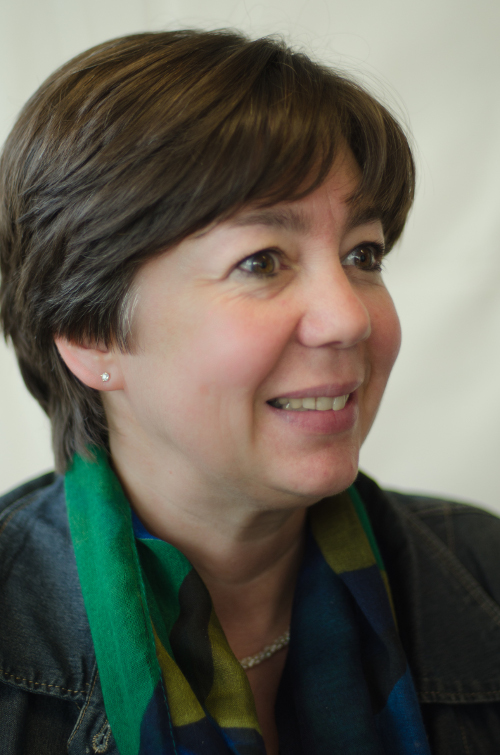
Prof. Benedicte De Winter
University of Antwerp & Universitary Hospital Antwerp, Netherlands
Title: The role of the gastrointestinal barrier in sepsis
Read more
Prof dr Benedicte De Winter is a full professor at the faculty of Medicine and Health Sciences of the University of Antwerp, Belgium. She obtained her MD in 1994 and her PhD in 1998 as a fellow of the Fund for Scientific Research (FWO). Her research career started as a medical student with the study of the role of nitric oxide in gastrointestinal motility in normal conditions and evolved during her PhD to motility studies in pathophysiological conditions such as ileus (postoperative and septic). The research topic was further broadened during her postdoc career to the domain of inflammation addressing the two most common diseases in the domain of gastroenterology namely inflammatory bowel diseases (IBD) and irritable bowel syndrome (IBS). Since October 2008, she is the director of the Laboratory of Experimental Medicine and Pediatrics (LEMP) at the University of Antwerp encompassing the fundamental, clinical and translational research of 7 different clinical disciplines (gastroenterology & hepatology; metabolic diseases, endocrinology and diabetology; pneumology; intensive care; nephrology; pediatrics and neonatology) united around the topic of inflammation. The topic of inflammation was recognized by the University of Antwerp as a center of Excellence Infla-Med of which Benedicte De Winter is co-promotor. The research of LEMP is focused on clinically relevant research questions on inflammation addressed via multidisciplinary approach. The main focus of her own research projects addresses the permeability-inflammation-pain axis in gastrointestinal disorders. Since October 2019 she is also appointed as the vice-dean research in the faculty of Medicine and Health Sciences.
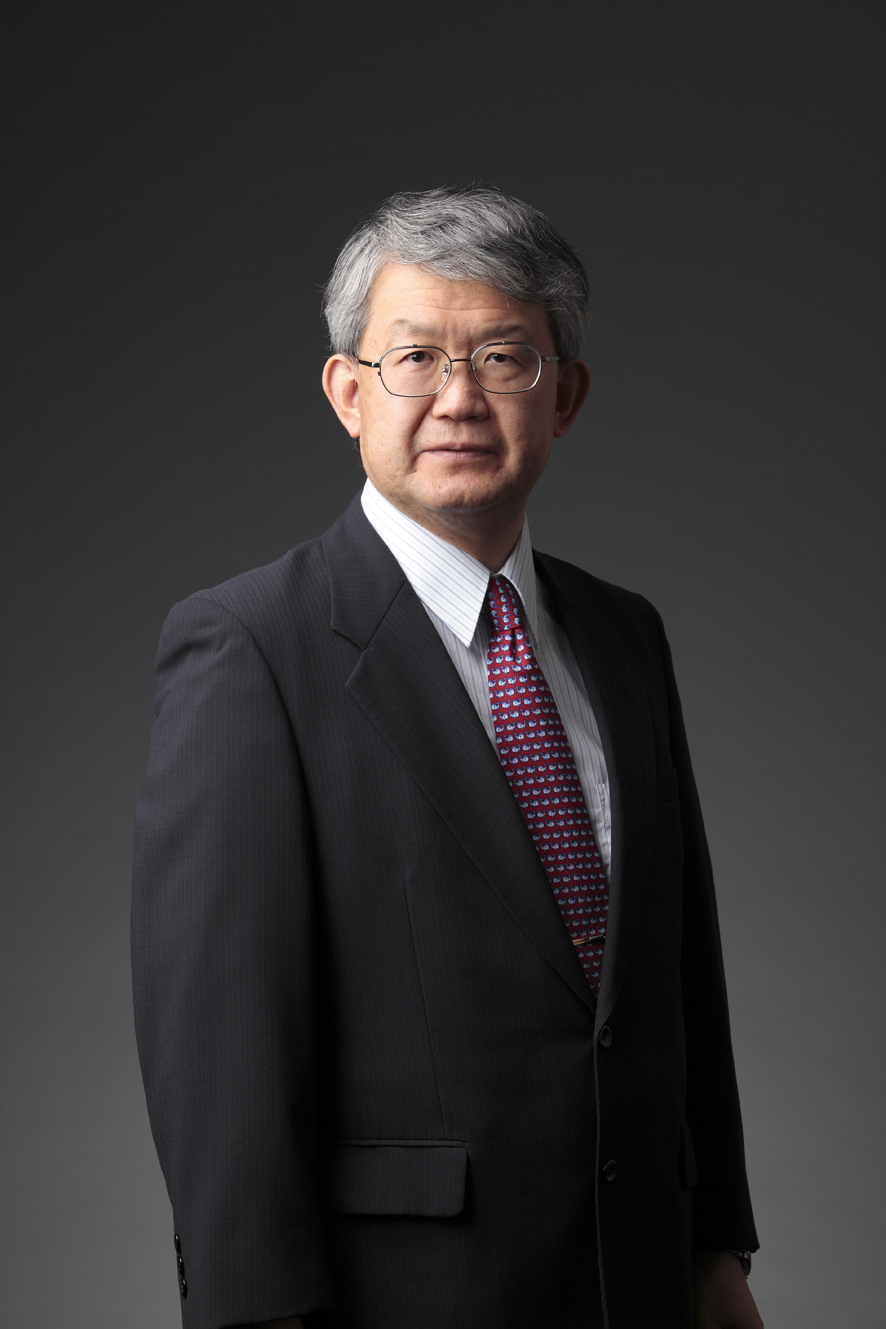
Prof. Kazuhiko Yanai
Tohoku University, Sendai, Miyagi, Japan
Title: Histamine N-methyltransferase in the brain.
Read more
Kazuhiko Yanai has over 30 years of experiences in the field of pharmacology and molecular PET imaging. After M.D. and Ph.D. degrees were obtained from Tohoku University in Japan, he stayed in the United States to conduct molecular PET research projects at the John Hopkins Medical Institutions for 2 years (1986-1987). In 1988, he obtained tenured assistant professor position at Department of Pharmacology, Tohoku University School of Medicine. In 1998, he became tenured full professor at the same department. He was in the position of a Director of Cyclotron Radioisotope Center, Tohoku University from 2012-2018. He is one of executive board members of the Japanese Pharmacological Society (2006-2010, 2012-2014, 2018-2020), and serves as the vice president of society at present. He has more than 250 English publications in major journals. His research topics are Basic and Clinical Pharmacology, Neuroscience, Nuclear Medicine, and Molecular Imaging.
REGISTRATION
In order to register, please complete the following:
1. Complete the registration form: EHRS2019 Registration Form
2. Pay your registration fee using bank transfer:
Recipient: Polskie Towarzystwo Chemii Medycznej; ul. Medyczna 9; 30-688 Kraków; Poland
IBAN: PL 25105014451000009080491732
BIC Swift: INGBPLPW
Registration fees:
(before / after March 10, 2019)
-
-
- EHRS members 400€ / 450€
- non-members 500€ / 550€
- Students / retired researchers 300€ / 350€
- Industry 550€ / 600€
- Accompanying person 250€
-
The registration fee includes:
– Welcome Reception (May, 15; 19:15)
– Attendance at all scientific sessions (May, 16-18)
– Coffee/tea breaks and lunches during all scientific sessions
– Jagiellonian University Collegium Maius guided tour on Thursday (May, 16)
– City Tour & Museum of Pharmacy on Friday (May, 17)
– Symphonic Concert in Karol Szymanowski Philharmonic in Krakow (May, 17)
– Galla Dinner on Saturday (May, 18; 20:00)
ABSTRACTS
Please send your abstract as an e-mail attachment to ehrs2019@uj.edu.pl.
The Abstract submission is closed
The subject of the message should begin with ‘Abstract’ followed by the surname of the participant.
Abstracts should be written in English. Type the text in single-line spacing using Times New Roman font, 11 points.
The file should be in MS Word format and the file name should contain the presenting author’s family name.
If there is more than one abstract from the same author, the name of the author should be followed by a corresponding number.
Please indicate whether you prefer oral or poster presentation.
The Scientific Committee will make the final decision on the form of the presentation.
PRESENTATION GUIDELINES
Young Investigators Award
The finalists present their work in the form of a 15 min oral presentation followed by a 5 min discussion during a special session.
The presentation file (.pdf or Microsoft PowerPoint format) should be send to the Organisers not later than May 15th.
Oral Communications
Oral presentations are scheduled for 15 min, which includes a 5-min discussion. The presentation itself should be no longer than 10 min.
Please ensure that the file with your presentation (.pdf or Microsoft PowerPoint format) is left at the registration desk on the morning of your presentation at the latest. Alternatively, you may email your presentation in advance to ehrs2019@uj.edu.pl
The presentation should be saved using a surname of the presenting author.
Poster Presentations
A poster number for a poster presentation will be assigned to you before the conference.
Posters should be in A0 format, portrait oriented (height 120cm x width 90cm, no landscape). The title should be typed in capital letters and the authors should appear next, underlining the author who presents the poster, followed by the address of the authors. Logos should not exceed the final size of 5×5 cm and should be placed in the left corner of the poster only. Poster number should be placed in upper right corner.
All posters will be also presented in a ‘Poster Flash’ form, which is a short ‘3-min – 2-3-slide’ presentation. Each presenting author will be given up to three minutes to make a brief oral presentation introducing their poster. Please prepare two or three slides that include your poster title, authors, and the main points and results you think will generate interest in your poster.
To avoid delays during Poster Flash session, please send a .pdf file of your slides to ehrs2019@uj.edu.pl no later than May 15th.
REWARDS & BURSARIES
Young Investigator Award
These prestigious awards of the EHRS will be offered under the following conditions:
-
Applicants must be pre-doctoral students or MD or post doctoral trainees with no more than 3 years post-doctoral research training.
-
Applicants must be members of the Society or have applied to become members of the Society.
-
The applicant must be the presenting author of a submitted abstract (usually this means first author).
-
The applicant must send a letter of application and include:
-
Curriculum vitae and a personal presentation of them and their work.
-
A statement clarifying their personal amount of work versus the supervisor and co-authors.
-
A copy of the submitted abstract.
-
An extended abstract (4 A4 pages).
Applications should be sent to the President of the EHRS Prof. Katerina Tiligada. Please send all parts as a single .pdf document with page breaks between parts, named “EHRS2019_YIA_APPLICANT’S NAME” and attached to a brief e-mail with a subject line: “EHRS2019 – YIA Application – APPLICANT’S NAME”.
All applications should be received by February 3, 2019.
The eligibility of the candidates will be judged by the Bursaries and Awards Committee, composed of Officers of the Society and EHRS Council members. The committee will select ca. 5 finalists, who will receive a certificate and a cash award and/or a prize. The finalists present their work in the form of a 10 min oral presentation followed by a 5 min discussion. Depending on the number and quality of the applicants, awards may also be made for Poster presentations.
It is anticipated that the first and second prize winners will be invited to publish their papers in Inflammation Research. The papers will undergo the normal reviewing process. However, if another journal is more suitable for the work, an acknowledgement that the work has been awarded a Young Investigators Award by the EHRS must be included.
Sudent Bursaries
Student bursaries of up to 500 Euro will be offered under the following conditions:
-
Applicants must be of pre-doctoral status (i.e. pre-PhD or equivalent).
-
Applicants must be members of the Society or have applied to become members of the Society.
-
The applicant must be the presenting author of a submitted abstract and must be able to defend the aim, results and conclusions of the study. A copy of the abstract must be enclosed.
-
Curriculum vitae, as well as a letter of application from the student, should be enclosed. This letter should state why the student feels that they should be awarded a bursary, as well as details of any other sources of funding that they can access.
-
A letter of recommendation from the supervisor including confirmation of the status of the student must be enclosed.
Normally only one studentship will be available per Department. If more than one student from a Department applies, the supervisor/Head of Department should rank the candidates.
Applications should be sent to the President of the EHRS Prof. Katerina Tiligada. Please send all parts as a single .pdf document with page breaks between parts, named “EHRS2019_ Bursary_APPLICANT’S NAME” and attached to a brief e-mail with a subject line: “EHRS2019 – Bursary Application – APPLICANT’S NAME”.
All applications should be received by February 3, 2019.
ACCOMMODATION
Please keep in mind, that Kraków is Poland’s most visited tourist city, therefore book Your accomodation at the earliest.
For accommodation purposes, Organising Comittee recommends Jagiellonian University Guesthouses (located in the Old City) mentioned below. For participants, lower booking prices are provided – please book via provided e-mail addresses, with “EHRS 2019” as a mail title. Offer is valid until the dates indicated in brackets.
Stanisław Pigon Visiting Profesors’ House (pigoniowka@uj.edu.pl, 15.03.2019)
Florianska Guesthouse (dguj@uj.edu.pl, 10.04.2019)
External hotels
There are a number of hotels situated in a walking distance from conference venue. A selection of hotels is listed below
Radisson Blu Hotel Kraków *****
Holiday Inn Kraków *****
Queen Hotel Kraków ****
Andels Kraków ****
Hotel Mercure Kraków ****
Metropolis Design Kraków ****
Hotel Kossak Kraków ****
Novotel Kraków Centrum ****
Ibis Kraków Stare Miasto ***
Ibis Kraków Centrum ***
Budget Accommodation
There are even more hostels in a walking distance to the venue, if you want to stay at lower budget. A selection of hostels could be find here:
https://www.eholiday.pl/noclegi-krakow-20095-hostel.html
TRAVEL INFORMATION
Krakow Old Town is located 12 km from Krakow Airport or approximately 30 minutes by taxi, bus (at off peak times) or train. For details, please click the links provided below
-
-
- Taxi (there is also a taxi rank at the airport just outside the main door of Terminal – approx. cost is €25-40, depending on traffic)
- Public buses
- Trains (however, due to railway modernization timetable is limited)
-
ORGANISERS
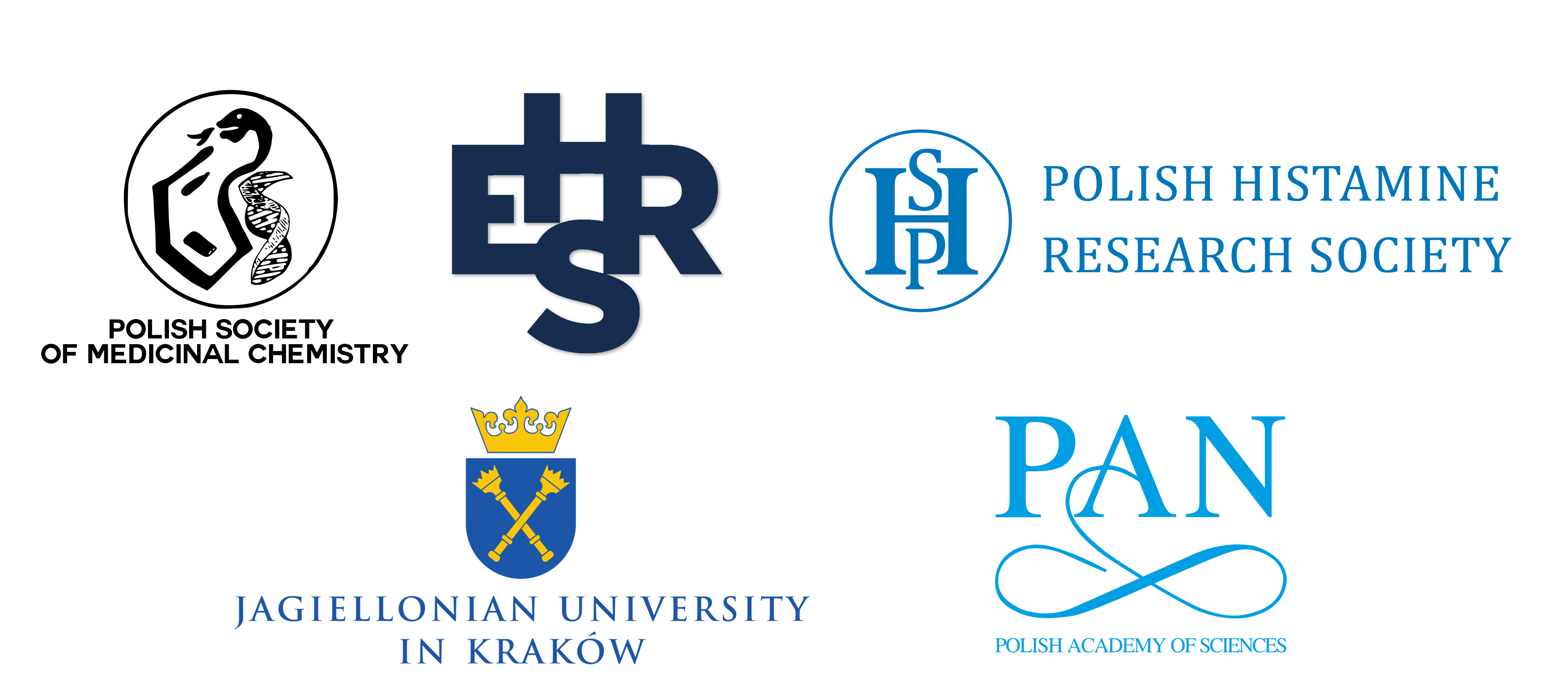
Scientific Comittee
Paul Chazot (Durham University, United Kingdom)
Madeleine Ennis (Queen’s University Belfast, United Kingdom)
Wiesława Agnieszka Fogel (Medical University of Lodz, Poland)
Hiroyuki Fukui (Tokushima University, Japan)
Katarzyna Kiec-Kononowicz (Jagiellonian University in Kraków, Poland)
Pertti Panula (University of Helsinki, Finland)
Maria Beatrice Passani (University of Florence, Italy)
Holger Stark (Heinrich-Heine-Universität Düsseldorf, Germany)
Katerina Tilligada (National and Kapodistrian University of Athens, Greece)
Local Organization Team
Prof. Katarzyna Kieć-Kononowicz
Prof. Barbara Malawska
Marek Grosicki
Jadwiga Handzlik
Kamil Kuder
Gniewomir Latacz
Dorota Łażewska
Agnieszka Olejarz-Maciej
Katarzyna Szczepańska
Ewa Szymańska
Małgorzata Więcek
Michał Załuski
Sponsored by:


